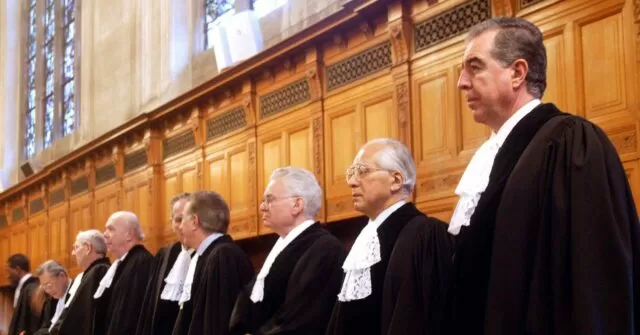The International Court of Justice (ICJ) has delivered its preliminary judgment on the ongoing conflict in Gaza, specifically addressing the accusation of “genocide” against Israel. The court has ordered Israel to produce a report within one month, but has not made a definitive finding on whether Israel is committing genocide.
This decision by the ICJ comes after a request by the United Nations General Assembly for an advisory opinion on the matter. The General Assembly had asked the court to determine whether Israel’s actions in Gaza constitute genocide, as defined by the 1948 Convention on the Prevention and Punishment of the Crime of Genocide.
The ICJ’s preliminary judgment has been met with mixed reactions. Some see it as a step towards justice for the people of Gaza, while others view it as a missed opportunity for the court to take a strong stance against what they believe to be blatant acts of genocide.
However, it is important to note that the ICJ’s decision is not a final ruling on the matter. It is a preliminary judgment, which means that the court has not yet reached a definitive conclusion. The court has ordered Israel to produce a report within one month, which will be taken into consideration when the final ruling is made.
The ICJ’s decision to not make a finding on whether Israel is committing genocide may seem disappointing to some, but it is a necessary step in the legal process. The court must carefully consider all evidence and arguments before making a final ruling. This is a complex and sensitive issue, and the court must ensure that its decision is based on solid legal grounds.
It is also important to remember that the ICJ is a judicial body, not a political one. Its role is to interpret and apply international law, not to make political statements. The court’s decision must be based on legal principles and evidence, not on emotions or political agendas.
The fact that the ICJ has ordered Israel to produce a report within one month is a positive development. It shows that the court is taking this matter seriously and is committed to thoroughly examining all aspects of the case. This report will provide the court with valuable information and will help in reaching a fair and just decision.
It is also worth noting that the ICJ’s decision does not absolve Israel of any responsibility for its actions in Gaza. The court has simply not made a definitive finding at this stage. The final ruling may still hold Israel accountable for any violations of international law.
The conflict in Gaza has been ongoing for decades, and it has caused immense suffering for the people living in the region. It is a complex issue with deep-rooted historical, political, and religious factors. The ICJ’s decision is just one step in the long road towards finding a lasting solution to this conflict.
In the meantime, it is important for all parties involved to respect the legal process and cooperate with the ICJ’s requests. This includes Israel, Palestine, and all other countries and organizations that have a stake in this matter. Only by working together and respecting international law can we hope to find a peaceful resolution to this conflict.
In conclusion, the ICJ’s preliminary judgment on the accusation of genocide in Gaza is a significant development in the ongoing conflict. While it may not have provided a definitive answer, it is a step towards justice and accountability. The court’s decision must be respected, and all parties must continue to work towards finding a peaceful solution to this complex issue. Let us hope that the final ruling will bring us closer to a lasting peace in the region.

